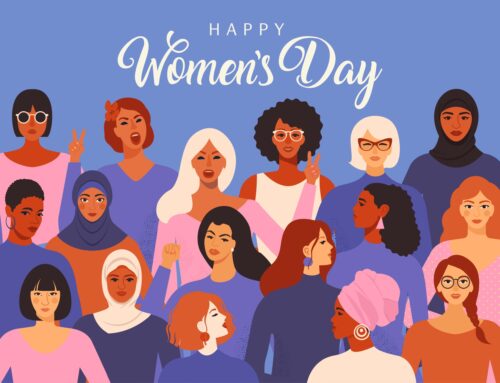The relationship between the world of work and technology is dynamic and can be exciting, but it has often been fraught, prompting anxieties about how new technological developments might alter or even replace existing jobs entirely.

These concerns are not new; during the first industrial revolution in the early 19th century, traditional handloom weavers famously broke the new, more efficient power looms that were helping depress their wages as a form of protest. Nonetheless, many would argue the first industrial revolution – as well as its two successors, based on mass production and digitisation – did over time generate more job opportunities, improve efficiency and in many respects served to make people’s lives easier in the long term.
Not another revolution…
The impact of technology on people’s working lives has not gone away. Many reading this article will be aware of news and social media coverage in recent years of a phenomenon increasingly referred to as the ‘Fourth Industrial Revolution’, or alternatively, ‘Industry 4.0’. The World Economic Forum describes this new revolution as characterised by dramatic technological advances, ‘merging the physical, digital and biological worlds in ways that create both huge promise and potential peril’.[1] In the context of work and employment, phenomena such as automation and artificial intelligence are increasingly able to perform work tasks that in recent memory were usually performed by people. Most of us are aware of this to some extent when we use the self-checkout tills in a supermarket, but other examples include online travel comparison sites, automated switchboards and the automatic processing of job applications.
Media coverage of ‘Industry 4.0’ has ranged from cautious optimism[2] to anxious warnings of mass job losses to robots and algorithms.[3] In contrast to the optimistic and pessimistic narratives, Executive Chairman of the World Economic Forum, Klaus Schwab, predicts that the actual effect of automation and AI will be ‘somewhere in the middle’[4] of the two extremes. While the true impact of the Fourth Industrial Revolution is yet to be known, most commentators agree that this new revolution is already showing signs of being far more dramatic in its impact than the previous three. So how can careers leaders and career guidance professionals prepare young people for a potential future where bus drivers are replaced by automated vehicles and houses are built by robots?
Adapt to survive
The types of technological shifts being described in this article and their potential impact on job roles and future job availability can be a great source of class discussion in careers and PSHE lessons, which can go some way towards meeting Gatsby Benchmark 2: Learning from Careers and Labour Market Information. Students could be encouraged to engage with the potential pros and cons of AI and automated processes, both how they as future workers might need to negotiate the impact of such technologies, and also the ethical considerations of machines performing tasks (or even whole occupations in some cases) that we are used to being performed by people.
For a fun activity, students could be presented with a set of current occupations and be encouraged to guess how likely the role is to be automated in the future. To check how accurate their predictions are, a careers leader or adviser could use the very handy search feature incorporated in the BBC news article ‘Will a robot take your job?’, based on research conducted by researchers at Oxford University and Deloitte.[5] They would find, for instance, that while a nurse is thought to have only a 0.9% risk of their job being automated, the risk for bricklayer is 82% (careers advisers are apparently 23.8% at risk of automation). This in turn can lead to fruitful discussions around what it is about certain jobs that might make them more at risk of being automated than others, and what this might mean for the shape of people’s careers looking further into the twenty-first century. For instance, if there will be less need for bricklayers in the future but increasing need for workers in the social care sector, will some construction workers need to consider retraining in order to fill skills gaps in a completely different sector?
Careering towards the unknown
While much of the focus so far has been on potential job loss as a by-product of automation and AI, it is also important to keep in mind that new technology also brings into being new jobs. Examples of jobs that have only come into being during the last 10-15 years include Social Media Managers, App Developers and Millennial Generation Experts amongst others.[6] At a time when many young people’s career aspirations seem limited only to the jobs they already know about,[7] it is important to help raise their awareness not just of existing jobs that they have not considered, but also of the jobs that may be created by future technological developments. Students could be encouraged to work in groups to predict what jobs may be needed in the future that have not yet been invented and present their work as a future ‘job profile’ to their peers, perhaps as a poster or infographic. It is of course impossible to predict precisely which new jobs will be around in 10 years’ time, but there is much useful discussion to be had around which skills are likely to be more important going forward in helping students adapt to the career shocks that lie ahead, and how they can develop these while still in education.[8]
There are many ways in which the impact – actual and potential – of the Fourth Industrial Revolution can be explored in careers and PSHE lessons. This article can only offer tentative suggestions, but it is hoped forward-thinking careers leaders and advisers will find something of useful when helping prepare their students for an ever-more automated future.
[1] World Economic Form (2020). [online]. Available at: https://www.weforum.org/focus/fourth-industrial-revolution [accessed 21.01.2020].
[2] Stubb, A. (2016). ‘For an optimistic revolution’. Available at: https://www.oecd.org/forum/oecdyearbook/for-an-optimistic-revolution.htm [accessed 22.01.2020]
[3] Morgan, J., (2020). ‘The fourth industrial revolution could lead to a dark future’. Available at: http://theconversation.com/the-fourth-industrial-revolution-could-lead-to-a-dark-future-125897 [accessed 22.01.2020]
[4] Schwab, K. (2017). The Fourth Industrial Revolution, Portfolio Penguin, 36.
[5] Nassos, S. et al. ‘Will a robot take your job?’. Available at: https://www.bbc.co.uk/news/technology-34066941 [Accessed 22.01.2020]
[6] Bowers, E. (2017) ’10 Jobs Created by Tech That Didn’t Exist 10 Years Ago’. Available at: https://blog.nasstar.com/10-jobs-created-by-tech-that-didnt-exist-10-years-ago/ [Accessed 23.01.2020]
[7] Sellgren K. (2020). ‘Warning over youth career aspiration – career disconnect’. Available at: https://www.bbc.co.uk/news/education-51192450 [Accessed 23.01.2020]
[8] World Economic Forum. (2018). ‘Future of Jobs 2018’. Available at: http://reports.weforum.org/future-of-jobs-2018/shareable-infographics/ [accessed 23.01.2020].
Oliver Jenkin is a Career Development Consultant at CSW Group with 11 years’ experience helping young people bring about positive changes in their educational and working lives. Oliver is a registered member of the Career Development Institute.





